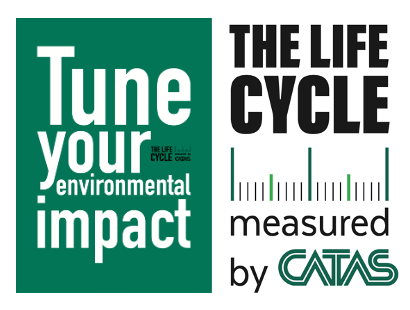
In the sustainability word two of the most known abbreviation are LCA and EPD, but what are they and why have we to be cautious to not confound them?
LCA or Life Cycle Assessment is a method for the evaluation of the environmental impacts of a product or a process during its entire expected life. The
measurement of something, so its results are numbers followed with unity of measures. Is based on international horizontal standards ISO 14040 and ISO 14044 and vertical standards PCRs (Products Category Rules) which introduce specific requirements due to the product category.
A life cycle study could be used as an internal
decisional tool. For example, the results of the study could highlight an exaggerated use of packaging or electricity easily reduceable.
The LCA could be used also as an
advantageous point for CAM or in the scheme LEVEL, Cradle to cradle and Ecolabel. So, it is an independent tool usable in different fields.
The
EPD or Environmental Product Declaration is the
environmental label, the certification that is possible only
after an LCA study. In fact, this label is based on LCA and could be obtained only after a verifying step. Who does the verification? An independent third body to assure the impartiality.
So, the process steps to obtain an EPD are the following:
- LCA study of the product or process and draft of the EPD. For more information click here
- Study’s verification by a third independent body
- EPD’s publication on EPD international website
Catas includes in its services also the accompanying activities during the verification phase and it is
recognized as LCA Practitionerby EPD International. For info:Matilde Ceschia
+39 0432 747241
ceschia@catas.com

 In the sustainability word two of the most known abbreviation are LCA and EPD, but what are they and why have we to be cautious to not confound them?
In the sustainability word two of the most known abbreviation are LCA and EPD, but what are they and why have we to be cautious to not confound them?